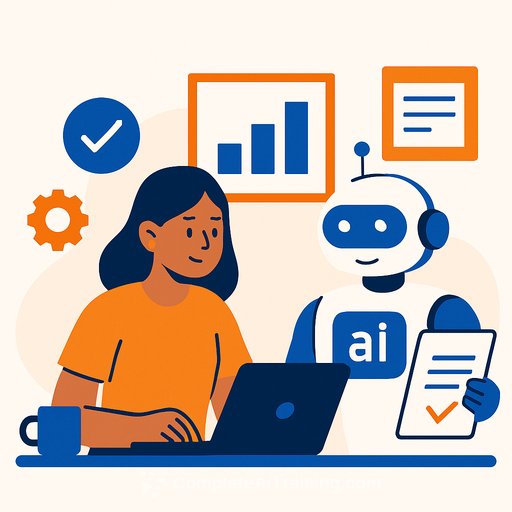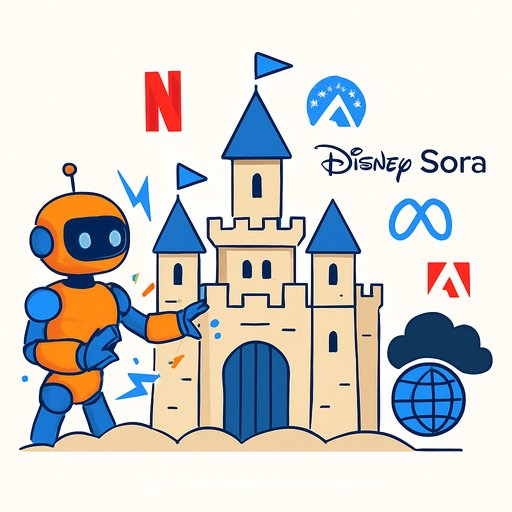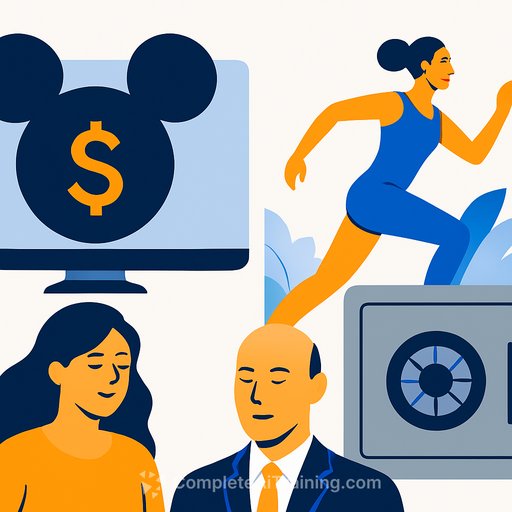The Creator Economy
Creators hire AI like interns as they look to save costs on the creative process
AI is quickly becoming an essential cost-saving tool for digital content creators. More than 80% of creators now incorporate AI in some part of their workflow, according to research by Wondercraft, a company specializing in AI audio generation. While some creators produce high-volume, low-effort “AI slop” content, many use AI pragmatically to handle tasks they once outsourced or dedicated extra time to.
Video creator Max Schneider calls ChatGPT his “assistant,” leaning on it for idea generation, research, and fact-checking. This approach helps him avoid the expense of hiring a human assistant, whose average U.S. salary is around $53,000 annually.
Research assistant and sounding board
Schneider runs a solo operation, creating humorous videos for Instagram, TikTok, and YouTube. He uses ChatGPT as a sounding board for concepts and ideas, much like he would with an assistant—smart but occasionally off-tone. Beyond brainstorming, he uses AI to fact-check and conduct market research on potential content popularity.
Though open to hiring a human assistant with specialized skills such as video editing, Schneider finds ChatGPT effective enough to put off that expense for now.
Copyeditor
Creators also use AI as a copyeditor to refine and streamline human-written content. Unlike fully AI-generated content, this method enhances quality without sacrificing authenticity.
LinkedIn creator Elvi Caperonis credits Grammarly’s AI tools for helping grow her following to nearly 250,000. However, she warns about current AI detection tools misclassifying human-written content that’s been AI-assisted. An authenticity scoring tool flagged her posts as AI-generated, which she contested, highlighting the need for better differentiation between AI-assisted editing and full AI creation.
Jenny Maxwell, head of education at Grammarly, notes that false positives are common in AI detection software. For example, a Stanford study mistakenly identified the Declaration of Independence as AI-written. Most AI detectors focus on detecting patterns rather than recognizing grammatical correctness.
Social media consultant
Both Caperonis and fellow LinkedIn creator April Little use AI tools like ChatGPT and Claude to analyze their top-performing posts. They ask AI for insights on the best times to post and the topics that resonate most with their audiences.
Little, who uses premium AI services, attributes a surge in engagement and nearly $20,000 in brand deals over two months to this data-driven approach. She gains 5,000 to 7,000 new followers monthly, spending just $20 per month on ChatGPT Plus. This is a fraction of the cost compared to traditional social media consultants, who charge $50 to $250 per hour.
Contract reviewer
AI also helps creators navigate legal documents, cutting down on costly legal fees. Schneider uses AI to review contracts, asking which party the terms favor. Platforms like Endlss have integrated AI to track and insert negotiation terms directly into contracts, simplifying the signing process.
David Abbey, CEO of Endlss, explains that creators can quickly check for exposure risks through AI before agreeing to terms, saving thousands in legal fees. Lawyers charge between $100 and $750 per hour for contract reviews, so AI offers substantial savings.
However, Laurie Selkowitz, a partner at Greenberg Glusker, points out AI’s limitations in contract review. It may miss external policies like brand guidelines or FTC rules and can’t fully grasp the commercial context or long-term strategies behind deals. Confidentiality concerns also exist if AI retains proprietary contract language.
Final thoughts
For creators, AI is a practical tool that replaces or supplements support roles, cutting costs and saving time. Whether acting as a research assistant, copyeditor, social media consultant, or contract reviewer, AI is helping creators manage their businesses more efficiently. It’s crucial, however, to understand AI’s limitations, especially in legal matters, and to use it as a support tool rather than a full replacement for human expertise.
For creatives interested in expanding their AI skills, Complete AI Training offers courses tailored to different creative roles, helping you make AI work for your unique workflow.
Your membership also unlocks:






